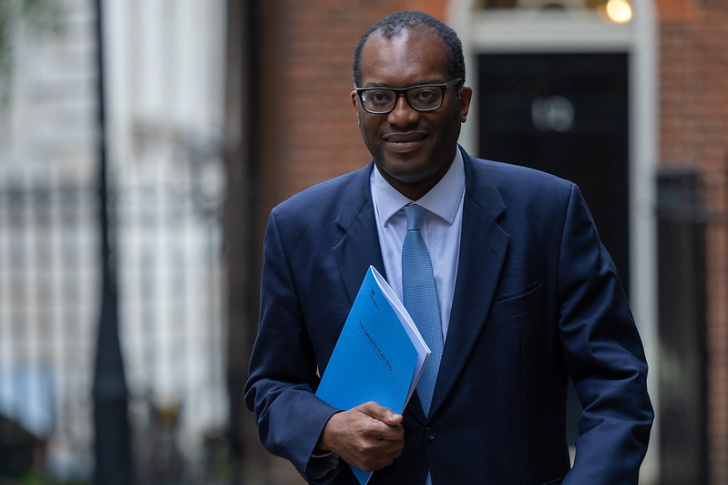Mini-Budget 2022: Planned corporation tax hike scrapped
Planned corporation tax and national insurance hikes scrapped by Chancellor Kwasi Kwarteng in an effort to kickstart the UK economy
Planned corporation tax and national insurance hikes scrapped by Chancellor Kwasi Kwarteng in an effort to kickstart the UK economy

Chancellor Kwasi Kwarteng has announced that the planned corporation tax rise to 25% set to come into force in April 2023 will be scrapped.
On Friday, the Chancellor confirmed that the corporate tax rate will remain at 19% in a move to “secure [the UK’s] place in a fiercely competitive global economy”.
This reversal is expected to plough an estimated £19bn “for business to reinvest, create jobs, raise wages or pay the dividends that supports our pensions”, he said at the emergency “mini” Budget.
The announcement is a welcome relief for businesses that are already facing the uncertainty of inflationary pressures and rising energy costs.
That said, the timing of the announcement will mean companies may have to deal with costly knock-on effects of “accounting implications of the reversal”, according to Matthew Hodkin, tax partner at Norton Rose Fulbright.
“Given the timings, companies would have already been making changes to their accounts to prepare for the increase to 25%. Banks will be disappointed, but not surprised, that the bank surcharge has not been reduced.
“This can have knock-on effects on the level of deferred tax assets and liabilities, which affect companies’ balance sheets and can be of particular concern to banks, insurance companies and other regulated businesses that are required to maintain a certain level of regulatory capital on the balance sheet.”
Susannah Streeter, senior investment and markets analyst at Hargreaves Lansdown, has criticised the Chancellor’s new ‘Growth Plan’, claiming that the government has “missed a trick” with maintaining the lower corporation tax rate as “targeted tax incentives and deductions” would have better helped to boost the country’s productivity and domestic company investment.
Kwarteng also announced a reversal of the planned 1.25 percentage point rise in national insurance (NI) which came into force back in July.
The change, effective on November 6, is anticipated to save 920,000 businesses an average of £10,000 a year.
“Cost bases are increasing from almost all sides for businesses – driven by rising inflation and interest rates – and the reduction in NI by 1.25% will allow them to benefit quickly at a time when it is much needed,” according to Jonathan Berger, employment tax director at Grant Thornton UK.
“The NI reversal will also reduce the expected cost of taxable benefits in kind and expenses, something that businesses will likely have a close eye on at this time.”
The changes to NI rates will mark the third change to take-home pay for many individuals this tax year, notes Berger.
Given the fast-tracked nature of this change, employers will need to start preparing immediately to be ready for the estimated November 6 date, says Rachel McEleney, associate tax director at Deloitte.
Furthermore, businesses may also want to review the timing of any discretionary payments they’re planning for employees to ensure they benefit from the reduced rate, Berger adds.
The Chancellor announced a wide array of support measures, including the reversal of the decision to deny VAT rebates for travellers leaving the UK and the introduction of new super-powered special investment zones, in an aim to “turn the vicious circle of stagnation into a vicious cycle of growth”.
As such, Kwarteng’s proposed mini-Budget was “far more like a Rolls Royce”, according to Chris Sanger, head of tax policy at EY.
“As fiscal events go, this was a seismic one,” he added.
While the multiple tax cuts and relief measures have been widely welcomed by businesses and the accounting industry, the substantial loss of income for the government has raised scepticism among experts on where the money will come from.
“I wonder how all of this is going to be paid for,” says Kersten Muller, head of real estate and managing director at Alvarez & Marsal.
“Borrowing is to go up substantially and bond yields have already gone up 20 basis points. I think that is an indication of the markets not having much confidence that this will be the medicine the UK economy needs.”
Similarly, the reduction measures will mean inflows into government funds will be “significantly reduced just at a time when they are being depleted to fund the energy price freeze”, adds Hargreaves Lansdown’s Streeter.
Furthermore, the government has been widely criticised for refusing to publish the Office for Budget Responsibility’s (OBR) fiscal outlook with Friday’s announcement.